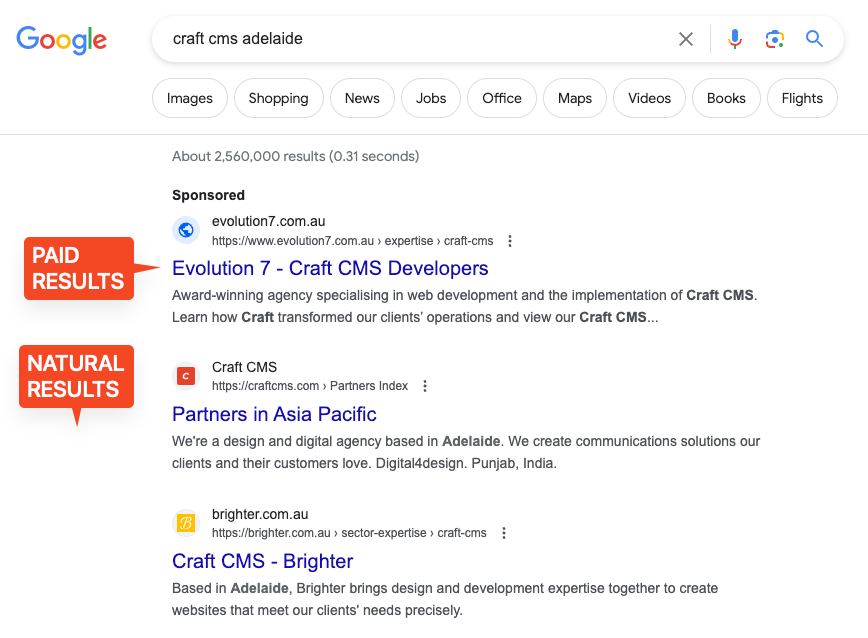Guidelines for your site
Google have been working on the algorithm to determine the ranking of a page for over 10 years, and are now very good at evaluating how well a site fits these criteria. It is constantly changing and improving.
The best approach for a good ranking: make sure your site is accessible, easily readable, and contains the relevant content people might be searching for.
It is no coincidence that these attributes are what constitute a good website in general.
Let's break it down. Ultimately, you want to ensure that:
- Your site is accessible
- Your site is user friendly
- Your content is useful and well-written
- Your pages have good titles
- Your URLs can be easily understood
- You post, share, and promote your website wherever you can (i.e. Facebook, Twitter, relevant forums).
A simple content example
If you happen to run a bakery in Strathalbyn, then you would want to make sure that your site clearly explains this in your content. People could be searching for the terms "Bakery in Strathalbyn" or "Where can I get good pies in strath", so you would want to check that these "Keywords" appear on your site. It's important to think about what relevant users might search for:
- Business name/nick-names: Brighter's Bakery, BB
- Goods: pies, pasties, donuts
- Services: catering, corporate lunches
- Locations: Strathalbyn, "strath", South-east Adelaide, Adelaide Hills
- Questions: "What is the best pie in South Australia?"

Also, note that Google and other search engines are smart enough to use synonyms and plurals of words as well, so keywords often don't have to perfectly match.

